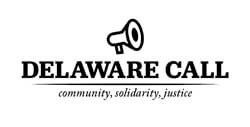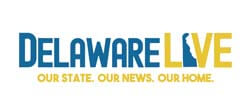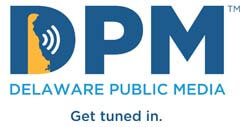Story by Karl Baker via Spotlight Delaware
Why Should Delaware Care?
Delaware’s governor manages state agencies, has the power to veto proposed laws, and sets the tone for how state government spends money each year. The histories of Delaware’s Democratic gubernatorial candidates can highlight for voters their personal interests while also showing how those interests might collide with public policy. This is Part 4 of a four-part series.
Among all of the candidates running for Delaware governor, Lt. Gov. Bethany Hall-Long arguably has the most classically formidable resume.
She was raised on a farm, married her high-school sweetheart, entered health care and earned a doctorate in nursing before teaching at the University of Delaware. She later worked her way up in the Delaware General Assembly, and then was elected lieutenant governor.
During her time in government, she has leveraged her history in nursing to advocate for public health programs that partnered closely with the state’s legion of politically influential nonprofits and hospitals.
Today, she has the backing of much of Delaware’s Democratic establishment, including Gov. John Carney and Speaker of the House Valerie Longhurst, and also a handful of progressive politicians, including House Majority Whip Kerri Evelyn Harris.

On top of it all, Hall-Long is even a descendant of Delaware’s 15th governor who served more than 200 years ago, according to her past campaign literature.
In many years in Delaware’s political past, Hall-Long’s resume would be enough to make her a shoe-in to become the Democratic Party’s candidate for the state’s highest elected official.
But in 2024, the race among Democrats features two other prominent candidates who have each been politicking across the state on various left-leaning issues, while being boosted by campaign committees that ended last year with more money than Hall-Long had in hers.
During the final days of 2023, Hall-Long transferred $655,000 from her previous lieutenant governor’s campaign fund to her current gubernatorial committee, leaving her with a year-end war chest of $687,000, according to campaign finance reports filed with the Delaware Department of Elections.
Her opponent Collin O’Mara, a former secretary of the Delaware Department of Natural Resources and Environmental Control, held more than $870,000 in his campaign committee at the year’s end, while the third Democratic candidate, New Castle County Executive Matt Meyer, dwarfed them both with $1.7 million.
To add to the challenges facing Hall-Long, an outside political group funded by executives at TransPerfect – a company from New York – says it will spend around $1 million starting next month, largely to pay for advertisements and campaign materials attacking her candidacy for governor.
Hall-Long’s campaign did not respond to an emailed question about the coming political onslaught.
For her part, Hall-Long has stayed focused on what she says were her accomplishments in recent years as lieutenant governor, in promoting paid family leave and affordable health care, as well as creating an advisory board of people from the community, called the Behavioral Health Consortium, that examines issues of mental health and drug use.
“Nobody listening in should suffer in silence,” Hall-Long said, referencing those maladies, during an interview with DETV earlier this year.

Early errors
Hall-Long also faces lingering questions about her previous campaign’s financial reporting irregularities, which last fall prompted scrutinous media coverage after various members of her election staff resigned.
The controversy began shortly after Hall-Long announced her candidacy for governor in early September. Following the announcement, a deafening silence surrounded the campaign as it canceled scheduled fundraising events. By the end of that month,Hall-Long said that she would hire an outside accounting firm – Dover-based Summit CPA – to look into previous campaign finance statements.
By November, her campaign amended past year financial reports and in a statement at the time Hall-Long called the reporting errors “unintentional.”
But her campaign has also repeatedly declined to release the results of the audit, so the exact details of the errors are not completely clear. In a statement sent to Spotlight Delaware last month, Hall-Long indicated that the errors originated from her using “her own personal funds for campaign costs like TV ads, yard signs, literature, and consulting.”
In total, she claims she spent $308,134 of her own money on such political expenses between 2016 and 2022. The campaign has repaid more than $200,000 of that total to her, she said in the statement.
It is not clear from her campaign’s amended financial reports when that repayment occurred.
The lack of clarity around the issue has already prompted two of Hall-Long’s opponents to criticize her over the controversy.
In an interview with Spotlight Delaware last month, Meyer skeptically questioned whether an audit even exists.
He also suggested that scrutiny of his own loans to his campaign amounted to punishment for him reporting the transactions “within a timely fashion.”
“Every candidate in this race has loaned their campaign a significant amount of money. My campaign did it within the law,” Meyer said of the Democrats running in the primary.
Republican candidate for governor Jerry Price has also leveled criticism at Hall-Long, questioning how and why the financial reporting issue popped up so suddenly, then was quicked resolved by the campaign.
“I’ll be releasing my taxes every year when I win, just so people know I’m not a thief,” he said.
Price will face longtime Pike Creek-area Rep. Mike Ramone on Sept. 10 in the Republican primary for governor.

Steady support
Hall-Long frequently mentions that she was raised on a farm in southern Delaware with two older brothers.
But life took her away from her hometown after high school, as she studied at Jefferson University Hospital in Philadelphia for her undergrad degree in nursing, before moving on to advanced degrees at the University of South Carolina and George Mason University.
For the past two-and-a-half decades, she has lived amid the relatively new suburbs of Middletown.
In 2000, she first ran for a seat in the General Assembly to represent that area, garnering substantial support for a novice candidate, including from the Delaware State Education Association, the influential union for state teachers.
Ultimately, Hall-Long lost in a contentious race that was characterized by Republican newspaper advertisements as “Mud Slinging in Middletown.”
Two years later, Hall-Long ran again and won the seat in the state House of Representatives. Her campaign website then pointed to highlights in her career, including managing 100 employees at Fairfax Hospital in Virginia, and later working for UD as a professor in nursing, as well as in public policy.
Six years after the electoral victory, Hall-Long ran for and won a seat in the State Senate, in which she served until 2017 when becoming the state’s lieutenant governor.
Her years in the legislature featured work on issues that have become signature to her political persona, including those related to mental health and substance use disorders.
Her campaign website also says that in the legislature she “spearheaded efforts to invest in much-needed infrastructure and protect our environment.” The website does not go into any detail about those efforts.
A News Journal article from 2010 also said Hall-Long was the senator then who was most likely to vote “yes” on a bill.
The News Journal had analyzed a two-year period in which the Senate had voted 512 times. Hall-Long had voted “no” just three times during that period. The phenomenon was criticized at the time by Republican State Sen. Colin Bonini, who said legislators who rarely voted “no” were acting like “sheep.”
But, rather than it being a sign of compliance, Hall-Long’s concurrence was more likely indicative of her support for the Democratic Party establishment whose leadership strictly controlled what bill was heard and voted on by the full Senate.
Hall-Long today continues to be the choice candidate for much of Delaware’s current Democratic leadership.
Still, for the most high-profile and contentious health care bill pushed by her party’s leadership in years, Hall-Long’s position is unclear.
In the coming weeks, lawmakers are poised to vote on, and likely, pass House Bill 350, which would create a board of Delaware officials who would oversee spending by hospitals in the state.
A spokesman for Hall-Long’s campaign did not respond to several emailed questions in recent weeks, including one about Hall-Long’s position on House Bill 350.

Past accusations
During her career, Hall-Long appears to have earned more modest salaries than her Democratic rivals. Still, she has been able to fund past campaigns with what she said were hundreds of thousands of her own dollars.
And, questions about the origins of her wealth are among the ones that her campaign has left unanswered.
She has publicly reported income in past years from the University of Delaware as a professor of nursing. Today, a UD professor makes a minimum of $113,130, according to the university salary scale.
But Hall-Long also appears to have benefited from a home rental business owned by her husband, Dana Armon Long, and her former deputy in government, Tanner Polce.
A year after she became lieutenant governor, Armon Long and Polce formed TWP and BML, LLC, a business that then purchased nine rowhomes in a neighborhood near Wilmington that has seen substantial government investment in recent years.
At least some of those homes have been designated by New Castle County to rent to applicants with Section 8 vouchers.
During the decade before purchasing the rowhomes, Armon Long worked as a contractor for New Castle County within the office that inspects and approves homes for the Section 8 program, according to a county spokesperson.
Hall-Long had not listed the company on her past financial disclosure reports, even as Delaware law directs candidates to list spousal assets.
Last fall, Hall-Long said in a statement that she had “followed common practice and decades of existing precedent in the process of filling out financial disclosures.”
The revelations about the undisclosed rental business were first reported last fall just as Hall-Long was facing the audit of her past campaign finance reports, which had been prepared by Armon Long.
Those also were the latest bad publicity for Hall-Long that involved her husband.
In 2016, WDEL reported that a “confidential source” said Armon Long took the county’s “protected list of low-income housing residents and cold-called them urging residents in his district to vote for his wife.”
Despite the allegation, he continued with the county until 2018 when his company purchased the nine rowhomes for his new business. The purchase prompted his supervisor to tell him that he could no longer serve in that position, a county spokesperson said.
Two years before the WDEL report, Dana Armon Long was caught on video walking toward his car with several campaign signs belonging to Hall-Long’s then-political opponent.
In the video, a person claims he stole the signs, to which Armon Long says, “there is no name on these signs,” referring to ownership taglines from political campaigns.
Police later charged Armon Long with theft.
In the aftermath, Hall Long released a statement acknowledging that her husband took the signs, and describing him as her high school sweetheart who let his frustrations over campaign attacks “get the better of him.”
——————————————————————————————————————-
This is Part 4of a four-part series examining the careers and campaigns of the Democratic candidates for governor in the 2024 election.
In Part 1, Spotlight Delaware reported that much of the money flowing into the race to be the Democratic nominee for Delaware governor has come from the candidates themselves. Part 2 detailed the recent career and campaign of Collin O’Mara. Part 3 looked at the recent career and campaign of Matt Meyer.




















